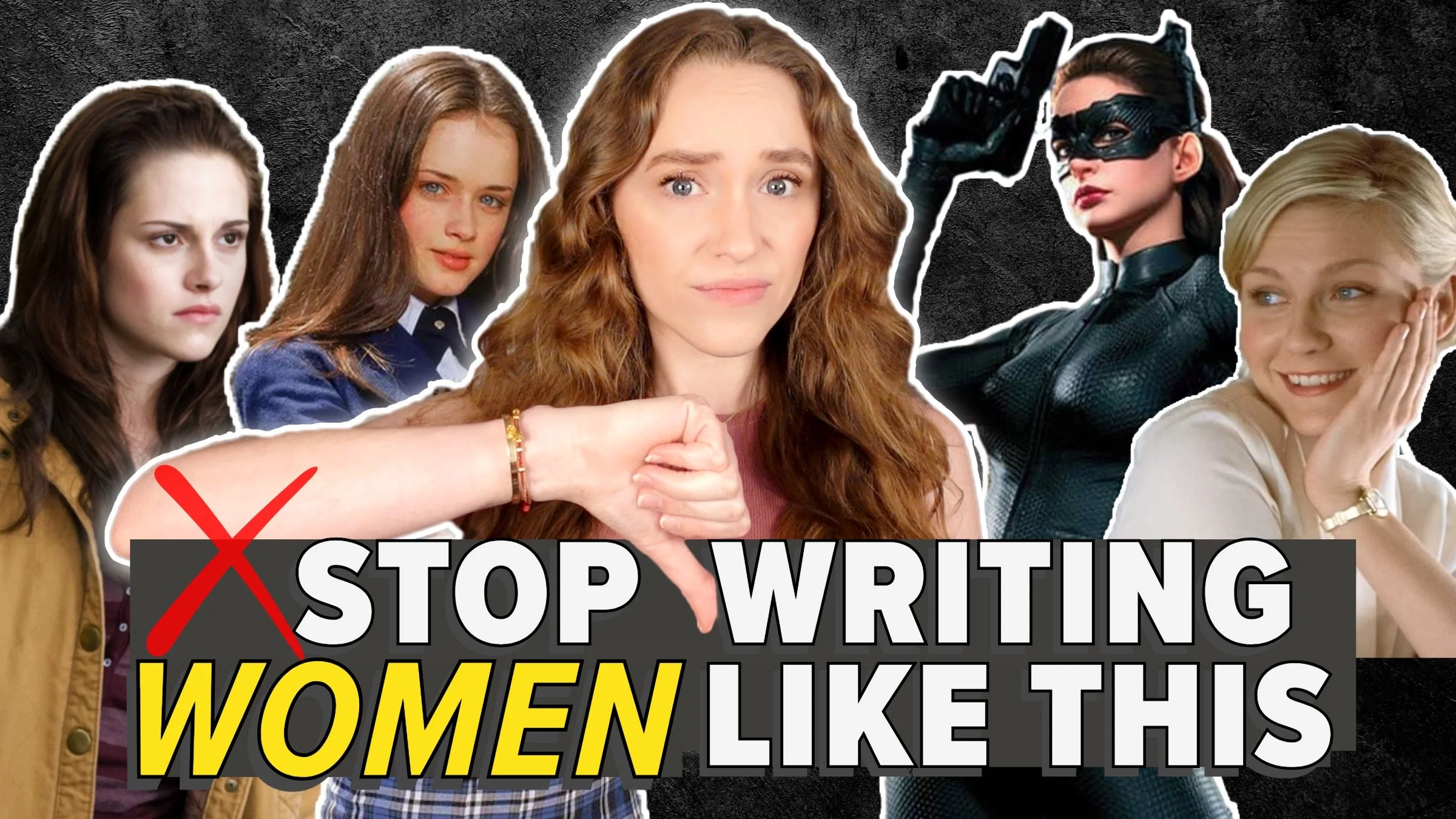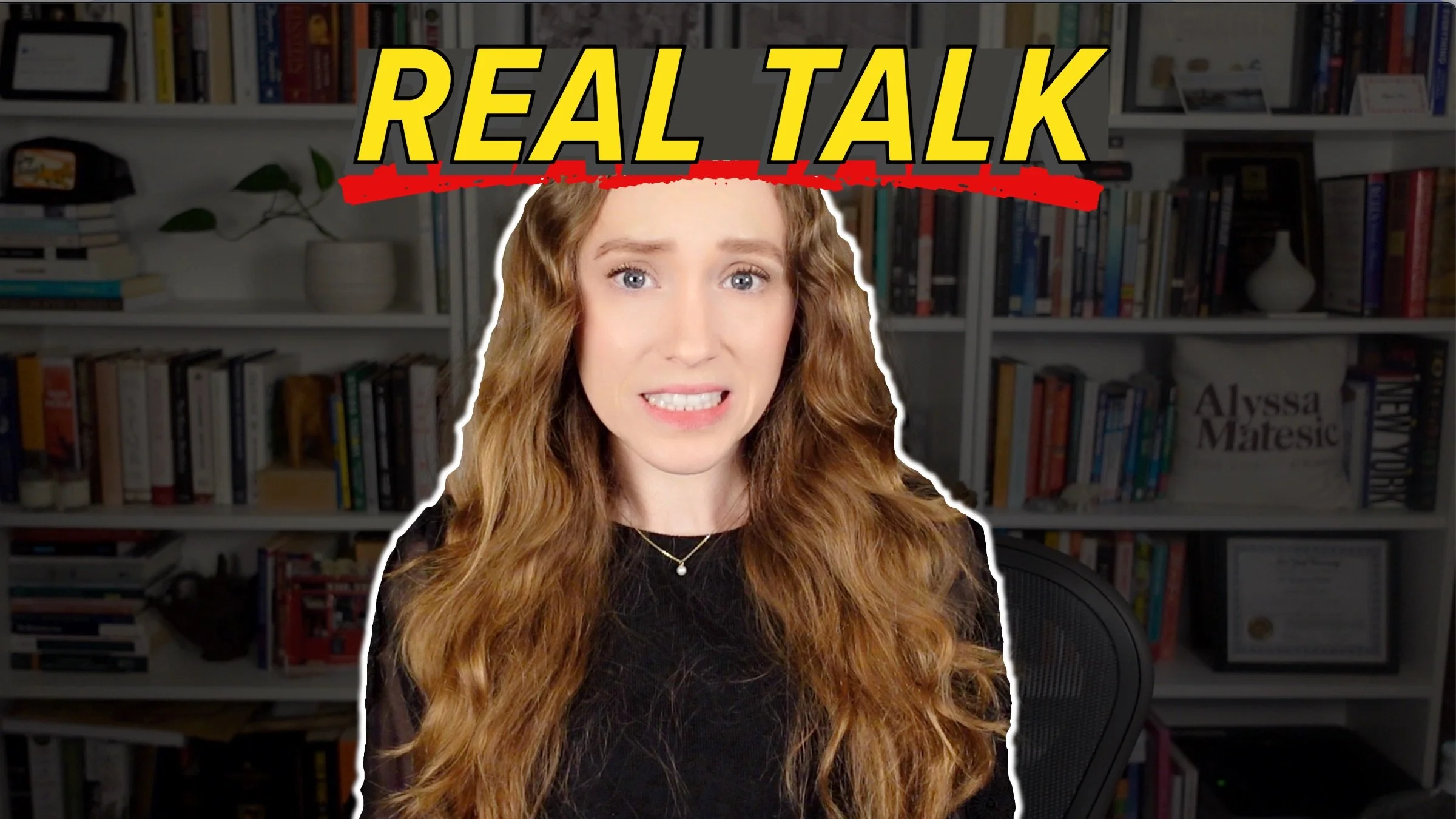Book Publishing Trends 2025: 4 Predictions from a Professional Book Editor
HIT PLAY OR READ THE POST BELOW:
AI controversies, mergers, publishing scams, BookTok scandals—the publishing industry never fails to keep us on our toes. Today, I'm going to reveal my four predictions for where the industry is going to take us in 2025.
1. Genre Fiction Will Continue to Rise
Something very interesting happened this year: when I would chat with my friends about the books they were reading, friends of mine who would only read literary novels or who didn't read much at all were devouring books like A Court of Thorns and Roses and Fourth Wing. They were getting completely hooked on the series to the point that they were even chatting about it with strangers at a coffee shop—which is a true story.
The romantasy explosion has shown no signs of slowing down, and the surge in popularity of romance at large has had a brick-and-mortar effect. We're seeing romance-only bookstores popping up across the country.
I anticipate that this interest in romance and romantasy will not only continue into 2025 but will spread to adjacent genres as well, like romantic suspense and even mysteries and thrillers more generally. This is a trend that I'm personally super excited about because there's so much genre fiction out there that is incredibly well-written and compelling, and I feel like it does deserve the spotlight sometimes.
2. Publishers Will Explore More Profit-Share Deals
My next prediction for publishing trends in 2025 is that book publishers will explore more profit-share deals. Back in March, a new publisher called Author Equity entered the industry, offering a new business model. Rather than providing an advance payment to authors and lower royalty percentages, they offer profit-share deals. In this type of deal, authors receive no advance payment upfront but get the lion's share of the profit made on their book.
This got a lot of people talking about the way authors are compensated in the publishing industry—and not always fairly. Now we're seeing authors with big, established platforms, including celebrities, go on to self-publish their books without any involvement from a publishing house at all. For example, Taylor Swift published her Eras Tour book on her own to huge success. This approach makes sense because, if you already have a built-in audience, you can retain a higher upside by self-publishing.
I anticipate that publishing houses will take note of this, and to retain and attract authors with large platforms, they will begin to dabble in offering profit-share agreements. This would be in the interest of lowering the incentive for authors to turn to self-publishing.
I don't think we would see the advance royalty structure as the standard arrangement go away by any means, but maybe, for select authors, some publishers will offer profit-share deals.
3. Debut Novelists Will Seek Midsize Publishers That Don’t Require Agents
The querying process has always been tough and grueling, but it feels like the odds are stacked against debut novelists now more than ever.
Even if you find a literary agent who loves your novel as much as you do, it doesn't guarantee that you will get a book deal. Unfortunately, some novels end up "dying on sub," which means that editors don't end up making you an offer.
This can happen because editors at publishing houses, especially at fiction imprints, have to convince risk-averse executives to take a chance on a debut novelist. It requires a lot of passion and buy-in to get these deals done.
While I do believe that debut novelists will still go on to sign with agents—and some will get great deals with amazing publishing houses and have huge commercial success, as we see happen every year and as I've seen happen with some of my own incredible clients—I think that for other debut novelists, where the querying process is a bit slower or they end up "dying on sub," they may turn to midsize or smaller presses that don't require an agent to publish.
Going with a midsize or smaller press doesn't mean that you won't have great sales with them, and it also doesn't mean you can't go to a Big Five house down the line if you eventually want to work with a bigger publisher. I have another blog post that talks about how to get published without an agent, so check that out if this is a path you're considering going down.
4. Publishers Will Take Stronger Stances on AI
AI continues to be a hot and controversial topic in the publishing industry, with authors especially concerned about their work being used to train LLMs without compensation and, in some cases, without their knowledge.
I anticipate that in 2025, more publishers will take hard stances on this topic and try to create some guidelines around it. In fact, we've seen two of the Big Five publishers try to handle the AI licensing question in recent months. In October, Penguin Random House became the first of the Big Five houses to take a stance on not allowing their books to be used to train AI models. Now, on all of the copyright pages of their books going forward, they have a statement that reads: “No part of this book may be used or reproduced in any manner for the purpose of training artificial intelligence technologies or systems.” This policy will apply to all new titles going forward and to books that get reprinted.
In other news, last month HarperCollins made a deal with Microsoft to use some of its non-fiction titles to train their AI models. The terms were $5,000 per title for three years, with 50% of that $5,000 going to the publisher and 50% going to the author. They allowed their authors to opt in or opt out of this deal.
On social media, many authors who were offered this deal expressed their concerns and disapproval of it. Clearly, this is an issue that needs to be figured out as soon as possible, especially as AI continues to develop exponentially.
So, what do you think about these book publishing trends? I'm excited to see how things shake out in 2025 and whether any of them come true.
If you're on the hunt for a literary agent, check out this master list of all literary agencies in the U.S.—that'll give you a great place to start your research.
Thanks so much for reading, and happy writing!






